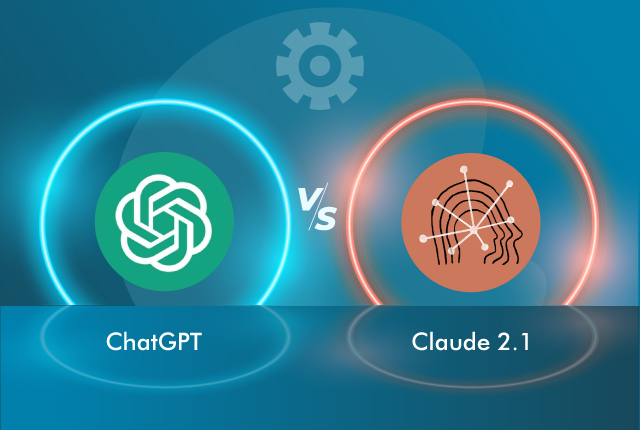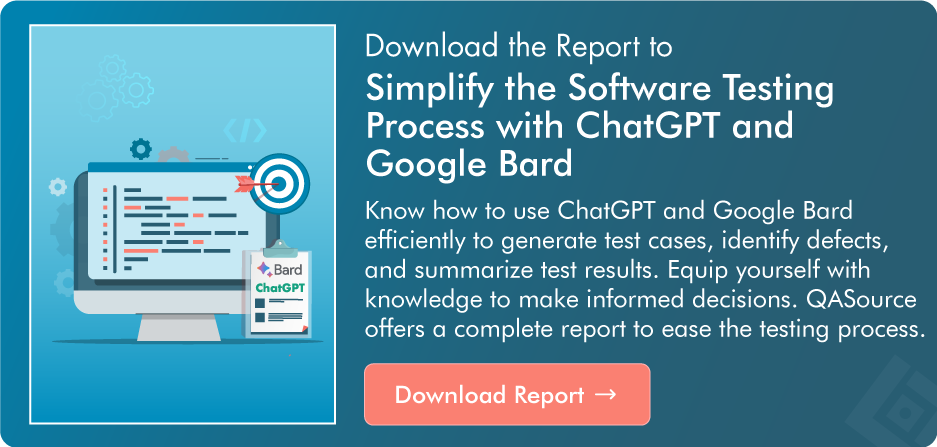
ChatGPT is an AI chatbot developed by OpenAI that is trained on a massive dataset. ChatGPT currently utilizes multimodal GPT-4 technology and has been enhanced with recent updates such as a code interpreter and plugins. It can generate creative content, analyze data, process information, and generate images.
Claude is an AI chatbot Anthropic focusing on safe and beneficial AI development. Claude uses constitutional AI methodology to generate output and engage in open-ended conversations and discussions.
Comparison Table
| Feature | ChatGPT | Claude 2.1 |
|---|---|---|
|
Training Methodology
|
Multimodal GPT-4 technology
|
Constitutional AI methodology
|
|
Specialization
|
Broad domain coverage
|
Client service, legal, back-office operations, and sales
|
|
Token Limit
|
8,192 (~3,500-4,000 words)
|
200,000 (~150,000 words)
|
|
Processing Time
|
Avg. 60 seconds
|
Avg. 5 seconds
|
|
Customization
|
Plugins and code interpreter
|
Customized responses based on datasets
|
|
Languages
|
Multiple, including programming
|
Multiple, including programming
|
|
Ethical Considerations
|
General guidelines
|
Focused on safety and ethics
|
|
User Experience
|
Versatile for various tasks
|
Efficient for extensive dialogues
|
|
Integration Capabilities
|
Extensive with the plugin system
|
Tailored to specific use cases
|
Functionality and Specialization
ChatGPT can handle many tasks and domains but may not be as specialized in specific areas as Claude 2.1. ChatGPT provides responses that feel professional, making it an ideal fit for client service use cases.
Claude 2.1 excels in specific use cases such as client service, legal matters, back-office operations, and sales. It customizes its responses based on particular data sets, speaks various languages, and even understands programming languages. Claude 2.1's focus on safety and ethics, leveraging its constitutional AI to ensure responses align with beneficial AI principles, adds a layer of ethical consideration to its interactions.
Token Size and Processing Time
ChatGPT has a token usage limit of 8,192 tokens, translating to 3500-4000 words. The average processing time required to process a query on ChatGPT is 60 seconds, during which it should understand, process, code, execute, and respond to a query.
Claude 2.1 has a token usage limit of 200,000 tokens, translating to approximately 150,000 words. It can handle significantly more tokens than ChatGPT. The average processing time required by Claude is 5 seconds, showcasing its ability to handle extensive dialogues efficiently.
Performance and User Experience
Claude 2.1 and ChatGPT aim to provide high-quality responses, but user experiences may differ based on individual interactions and preferences. ChatGPT's plugin system and code interpretation capabilities extend its functionality, allowing for a broad range of use cases beyond text generation. This versatility can be particularly appealing for developers and businesses looking for an AI model that can be integrated into various applications and services.
In conclusion, both GPT-4 and Claude 2.1 are powerful AI models. GPT-4 excels in language and logic tasks, while Claude 2.1 focuses on safety, ethics, and effectiveness. When deciding which model to use, you must consider your specific requirements, budget, and the tasks you require assistance with. The choice between ChatGPT and Claude 2.1 comes down to the user's particular needs, including ethical guidelines, customization capabilities, and the balance between innovation and safety.


Post a Comment